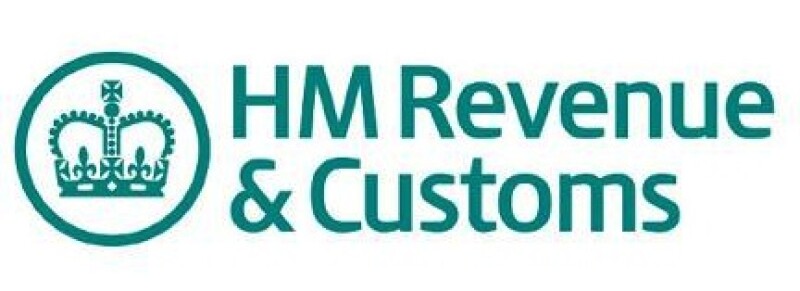Graham Aaronson QC (pictured below) was tasked with leading a study group on behalf of the government into the feasibility of implementing a UK GAAR, and presented his findings and recommendations to government in November.
In line with Aaronson’s recommendation, the government announced in March’s budget that a broad spectrum anti-abuse rule would not be beneficial for the UK tax system, favouring instead a more targeted approach.

Tax avoidance and tax evasion have been a continued area of focus for the UK government, with Chancellor George Osborne describing the practices as “morally repugnant”.
Bill Dodwell, head of tax policy at Deloitte, said abusive schemes bring the tax system into dispute and that a range of approaches to cut out avoidance is best.
“The structure of the law and targeted anti-avoidance rules, supported by HMRC’s compliance activities, and ultimately decisions of the Tax Tribunal are the best way to limit planning. However, a narrowly-targeted GAAR could have a limited role to play,” he said.
Application
The GAAR would apply to income tax, corporation tax (including the linked bank levy), capital gains tax, petroleum revenue tax, stamp duty land tax and national insurance contributions (though this will require separate legislation), while VAT would be excluded due to “potentially difficult interactions with the doctrine of abuse of law”.
With the stated intention of the proposal being to counteract tax advantages arising from tax arrangements that are abusive, the government has clarified its interpretations of the terms tax arrangement, abusive and tax advantage in relation to the application of GAAR.
Arrangements are considered tax arrangements, explains the document, if “having regard to all the circumstances, it would be reasonable to conclude that the obtaining of a tax advantage was the main purpose, or one of the main purposes, of the arrangements”.
The consultation document outlines that a tax arrangement is abusive if it is an arrangement “the entering into or carrying out of which cannot reasonably be regarded as a reasonable course of action”, while a tax advantage, according to the document, includes:
relief or increased relief from tax;
repayment or increased repayment of tax;
avoidance or a reduction of a charge to tax or an assessment to tax;
avoidance of a possible assessment to tax;
a deferral of a payment of tax or an advancement of a repayment of tax; and
avoidance of an obligation to deduct or account for tax.
Burden of proof

The Aaronson report recommended that the burden of proof should fall on HMRC, with HMRC having to show the criteria for application of the GAAR has been met. The consultation document clarifies that in proceedings before a court or tribunal in connection with the GAAR, HMRC must show: that there are tax arrangements that are abusive, and that the counteraction of the tax advantages arising from the arrangements is just and reasonable.
Penalties
Existing penalty provisions and their criteria would apply as they do at present. Aaronson recommended this, despite noting that a penalty regime would increase the deterrent effect of the GAAR. Government has said it accepts his recommendation, but that it will “keep the matter under review” as experience of the GAAR develops.
Taxpayer safeguards
An advisory panel comprised of members from HMRC and from outside HMRC would be put in place to help taxpayers and HMRC identify the boundaries of GAAR application. However, the advisory panel would be just that – advisory. The opinions it gives would not be binding on the taxpayer or on HMRC.
The process would follow a pattern whereby an HMRC officer, of the opinion that GAAR may apply, writes to the taxpayer with the relevant reasons for that belief. The taxpayer would then provide a written response for the official to consider. If the HMRC officer still thinks GAAR could apply, they must refer the issue to the advisory panel, which in turn would provide HMRC and the taxpayer with its opinion.
The government wants comments on whether time limits should be imposed for any of the stages in the process, and if so, what those should be.
Many stakeholders have aired their dissatisfaction that the panel’s opinions would not be binding on HMRC, believing that if the panel recommends that GAAR should not be applied, then HMRC should not be able to proceed with trying to apply it.
“Is it intended to be a safeguard, or will it just add another level of review and bureaucracy?” said Heather Self, director at Pinsent Masons.

The authorities have responded by arguing that “the courts are responsible for delivering judicial decisions about the application of tax law” and that it “would be inappropriate for an advisory panel set up outside those bodies to have a similar level of authority, albeit binding in one respect only”.
Dodwell said the precise role of the panel needs to be worked out, and that certainty must be a central pillar of any legislation in this area.
“The key challenge is to avoid subjectivity, which could introduce damaging uncertainty for businesses,” said Dodwell.
Advisers are worried about the lack of safeguards
Focus on certainty
But Mary Monfries, partner at PwC, said that “the central concepts of the proposed GAAR are inherently subjective” and identified the risk of uncertainty and an additional burden and cost for taxpayers who believe they are in the middle ground of acceptable planning.
The use of subjective language such as “reasonable” has also been specifically criticised.
“What is reasonable to one person is unacceptable to another,” said Chris Morgan, head of tax policy at KPMG. “Taxpayers who enter into any planning at all will therefore have a Sword of Damocles hanging over their head, not knowing if HMRC will invoke the new rule and how a court will ultimately apply it.”
Advisers are bemoaning the lack of a clearance system which would enable a taxpayer to agree in advance with HMRC whether a proposed arrangement is acceptable or not. The absence of such a system is the main factor creating uncertainties, they claim.
“This draft of the GAAR would be a massive headache for UK businesses,” said Self, who believes that the proposals will “inevitably lead to uncertainty in commercial transactions”.
Neal Todd, partner at Berwin Leighton Paisner, goes further, claiming that as well as fuelling uncertainty, the proposals “threaten to hand HMRC a discretionary power which is at odds with the rule of law”.
Todd is not alone in his concerns over mission creep.
“Given that this government appeared to view genuine charitable donations as tax avoidance, there’s a risk that the impact of the GAAR could be wider than merely targeting aggressive schemes,” said Self.
With the consultation period due to close on September 14 2012, and the commencement date not until April 1 2013, stakeholders have time to present their concerns and influence the GAAR’s design before any final legislation is enacted.










